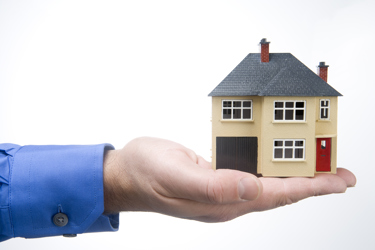Working From Home While Living In A Coronavirus World

By Rob Wright, Chief Editor, Life Science Leader
Follow Me On Twitter @RfwrightLSL

With the rise of the coronavirus, more and more people are opting to work from home. For me, now in my tenth year as chief editor of Life Science Leader, I’ve found that I prefer the solace of my home office because I’m able to better focus and minimize interruptions while writing. I still work in the office more than I do at home, but I know that when it comes to the writing portion of my job, I’m more productive when my dog is the only one nearby to distract me from my task.
Tips On Working From Home
To those companies with the ability to have their employees work remotely during this current outbreak, be sure to recognize and share any positive outcomes and best practices from this experience. Doing so can help educate those employees who may have never worked from home and are unsure or even reluctant (working remotely isn’t for everyone) to leave their traditional workplace environment.
Working remotely doesn’t necessarily mean sitting at a desk for 8 hours with two 15-minute breaks and a half-hour lunch. For me, I approach the day as if I were going into the office. I plan ahead; the night before, I bring home any materials I’ll need for my day at home, such as background or notes on an article I’m planning to write. I might break the day up by taking the dog for a walk, reading the paper, etc. But others might break up the day after finishing a work task by spending 15 minutes folding laundry, cleaning a room, paying bills, or throwing together dinner (which I often do). I try to view these breaks as little rewards for a job well done, but they also can serve as productivity enhancers for your family life.
However, I try to avoid taking any sort of unreasonable amount of time for a break that isn’t work related (e.g., takes longer than 15 minutes). The key is making sure you complete the tasks/jobs that you were supposed to for that day, and if that means you have to work a little later in the evening or start earlier the next day, then so be it. Don’t plan work-from-home days as an opportunity to pull a “fast one” on the company (i.e., go hit the golf course); let your conscience be your guide. I view working from home as a privilege. As such, like driving a car, it comes with being responsible, reasonable, and trustworthy. Don’t be cavalier and misplace the trust your employer has placed in you. Because trust is one of the hardest things to earn that can easily be destroyed.
When I work from home, I try to avoid distractions, which include unscheduled phone calls, constantly checking email, or going down the rabbit hole of various social media platforms. Thus, I leave my cell phone downstairs in the kitchen. And when I have to take a bio break, get coffee, etc., I don’t necessarily use that as an opportunity to check my phone. Rather, I discipline myself to try to check any of my electronic communication once in the morning, at lunch, and in the afternoon. I realize not everyone can do this, but for me, when I’m working from home, I don’t want to get bogged down with anything not related to my writing, because that’s why I’m there. If there is a pressing email, my response will likely be concise, or maybe I’ll just call.
Life In A Coronavirus World
The other day when I stopped at the gas station I opened a Ziplock bag filled with Clorox wipes (yes, we’ve added these to all of our family vehicles) and I wiped off the gas pump handle, the credit-card keypad, and anything else I might touch on the pump during fueling. And after finishing and getting back in the car, I applied hand sanitizer, another item worth keeping in the car nowadays.
You may consider this as being overzealous. But I was looking at it from the perspective of it being my civic duty to help ensure safety, and not just mine, but that of others. For if I don’t have the coronavirus, one of the things I can do as a productive member of society is help impede its spread. In fact, if you think about it, this isn’t all that different from the Department of Homeland Security’s approach of, “If you see something, say something.” This slogan exists to empower every U.S. resident to make a positive difference for others by just making a call. Why not take a similar mindset during this current crisis? Don’t worry about what others might think if they see you wiping down the credit card reader at the checkout before making your transaction. Just think of it as your small way of paying it forward. And for those who think, “That’s not my job,” or, “Shouldn’t the retailer be doing that?”, I say, in times like these, people need to be responsible, accountable, and lead by their actions. In other words, don’t shirk your responsibility for keeping yourself safe. Because by doing so, you are helping to flatten the coronavirus curve, and others will benefit — and isn’t that a good thing?
Here are some additional recommendations from the CDC on steps to take to prevent illness.
